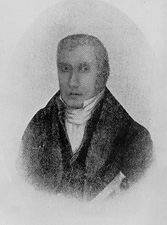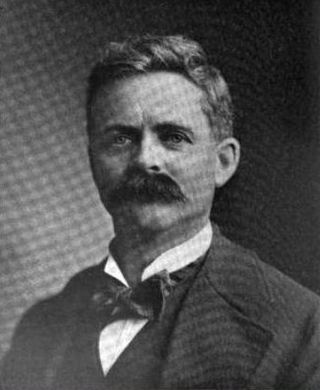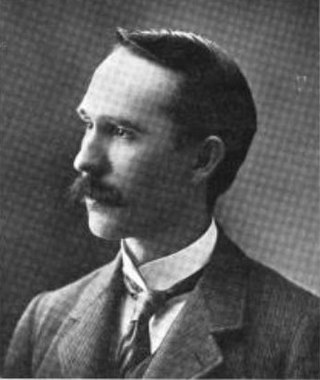Related Research Articles

Swanton is a town in Franklin County, Vermont, United States. The population was 6,701 at the 2020 census. The town includes the village of Swanton.

Jacob Collamer was an American politician from Vermont. He served in the U.S. House of Representatives, as Postmaster General in the cabinet of President Zachary Taylor, and as a U.S. Senator.

James Fisk was an American politician from Vermont. He served in the House of Representatives and the United States Senate.

Lawrence Brainerd was an American businessman, abolitionist and United States Senator from Vermont. A longtime anti-slavery activist, after leaving the Jacksonians in the 1830s, Brainerd was active in the Whig, Liberty, and Free Soil parties, and was one of the organizers of the Republican Party when it was formed as the main anti-slavery party in the mid-1850s. Brainerd's longtime commitment to the cause of abolition was recognized in 1854, when opponents of slavery in the Vermont General Assembly chose him to fill a five-month vacancy in the United States Senate.

William Upham was an American attorney and politician from Montpelier, Vermont. He was most notable for his service as a United States senator from Vermont.

Peter Thacher Washburn was a Vermont lawyer, politician and soldier. A veteran of the American Civil War, he served as the 31st governor of Vermont as a Republican from 1869 to 1870, and was the second Vermont Governor to die in office.

Ebenezer J. Ormsbee was an American attorney and politician from Vermont. A Republican, he served as lieutenant governor from 1884 to 1886, and governor from 1886 to 1888.

Frederick Enoch Woodbridge was a nineteenth-century politician and lawyer from Vermont. He served as a U.S. Representative from Vermont.

Hoyt Henry Wheeler was an associate justice of the Vermont Supreme Court and later a United States district judge of the United States District Court for the District of Vermont.

Orion Metcalf Barber, frequently known as O. M. Barber, was a Vermont state politician and an associate judge of the United States Court of Customs and Patent Appeals.
Lyman Gillett Hinckley was a lawyer and politician who served as the 30th lieutenant governor of Vermont from 1874 to 1876.

Levi Underwood was a lawyer and politician from Vermont. Originally a Democrat, Underwood's antislavery views caused him to join the new Republican Party when it was founded. Underwood was most notable for his service as the 23rd lieutenant governor of Vermont from 1860 to 1862.

William Cullen Kittredge was a Vermont lawyer and politician. He served as 18th lieutenant governor of Vermont from 1852 to 1853.
Ebenezer N. Briggs was an American lawyer and politician in the U.S. state of Vermont. He served as the Speaker of the Vermont House of Representatives and as President Pro Tem of the Vermont Senate. He was also the father-in-law and law partner of Governor Ebenezer J. Ormsbee.
The president pro tempore of the Vermont Senate presides over the Senate of the U.S. state of Vermont in the absence of the lieutenant governor. The president pro tempore also sets the policy priorities and legislative agenda for the Senate.
Asa Aldis was a Vermont attorney, politician, and judge. He served as chief justice of the Vermont Supreme Court in 1815.

Fred M. Butler was a Vermont attorney and judge. He is notable for his service as an associate justice of the Vermont Supreme Court from 1923 to 1926.

John Prout was a Vermont attorney, politician, and judge who served as an associate justice of the Vermont Supreme Court from 1867 to 1869.

Charles Linsley was a Vermont lawyer and politician. The son-in-law of Daniel Chipman, he was notable for his service as United States Attorney for the District of Vermont (1845-1849), member of the Vermont House of Representatives (1858-1859), and U.S. Collector of Customs for Vermont (1860-1861).

Arthur P. Carpenter was an American attorney and government official from Vermont. A Democrat, among the offices in which he served was United States Marshal for the District of Vermont (1914–1922) and judge of the Brattleboro, Vermont municipal court (1923–1929).
References
- 1 2 3 4 5 "Sketch of Orlando Stevens", p. 100.
- 1 2 3 4 5 6 The Crafts Family, p. 224.
- ↑ "Rutland Notes: The Late Hon. Orlando Stevens", p. 3.
- ↑ "Sketch of Orlando Stevens", pp. 100=101.
- ↑ Journal of the House of Representatives and Senate of the State of Vermont (1852), p. 70.
- ↑ The Legislative Manual of the State of Minnesota (1901), p. 102.
- ↑ Genealogy of the Olmsted Family in America, p. 242.